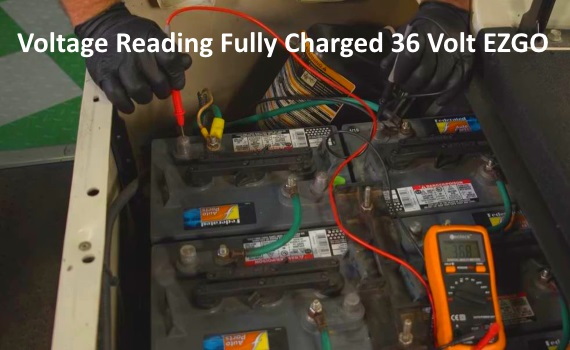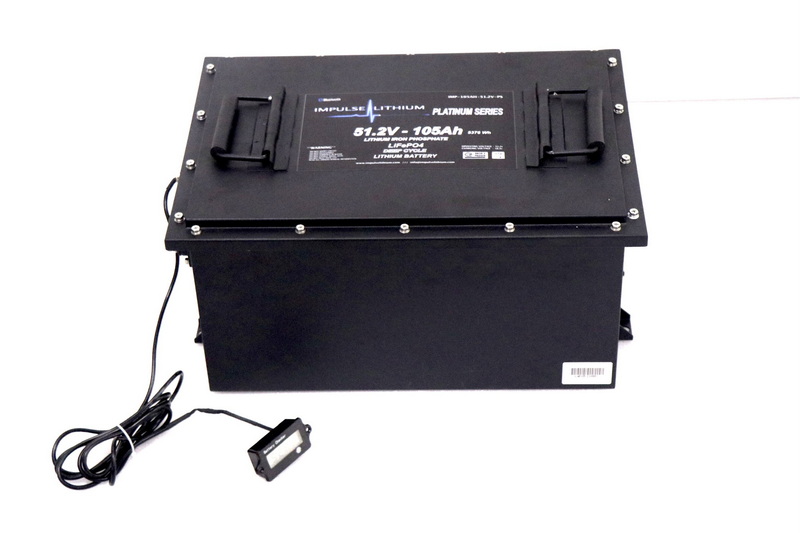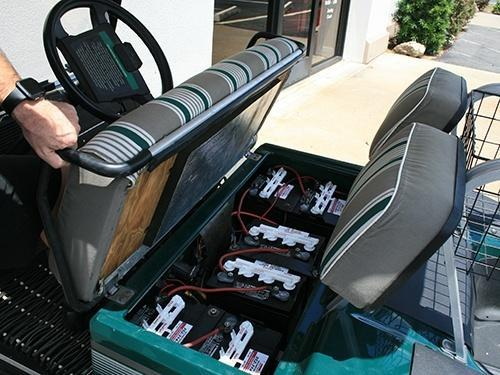Content Menu
● Understanding Electric Golf Cart Batteries
>> Lead-Acid Batteries
>> Lithium-Ion Batteries
>> Factors Influencing Battery Prices
● Battery Maintenance and Replacement
>> For Lead-Acid Batteries
>> For Lithium-Ion Batteries
● Cost of Battery Replacement
● Advantages and Disadvantages of Each Battery Type
>> Advantages of Lead-Acid Batteries
>> Disadvantages of Lead-Acid Batteries
>> Advantages of Lithium-Ion Batteries
>> Disadvantages of Lithium-Ion Batteries
● Choosing the Right Battery for Your Golf Cart
● Conclusion
● Frequently Asked Questions
>> 1. How long do electric golf cart batteries last?
>> 2. How often should I replace my golf cart batteries?
>> 3. Can I mix different types of batteries in my golf cart?
>> 4. How can I extend the life of my golf cart batteries?
>> 5. What is the best battery for my electric golf cart?
Electric golf carts have become increasingly popular for both recreational and practical uses. Whether you're cruising around the golf course, navigating a large property, or simply enjoying a leisurely ride, the performance of your electric golf cart largely depends on the quality and type of battery it uses. In this article, we will explore the various types of batteries available for electric golf carts, their costs, and factors that influence battery prices. We will also provide insights into battery maintenance and replacement, ensuring you have all the information you need to make an informed decision.

Understanding Electric Golf Cart Batteries
Electric golf carts typically use two main types of batteries: lead-acid batteries and lithium-ion batteries. Each type has its own advantages and disadvantages, which can affect the overall cost and performance of the golf cart.
Lead-Acid Batteries
Lead-acid batteries are the traditional choice for electric golf carts. They are widely available and generally less expensive than lithium-ion batteries. However, they are heavier and have a shorter lifespan. Lead-acid batteries come in two main types:
1. Flooded Lead-Acid Batteries: These are the most common type and require regular maintenance, including checking water levels and equalizing charges. They are typically the least expensive option, with prices ranging from $100 to $200 per battery.
2. AGM (Absorbent Glass Mat) Batteries: AGM batteries are sealed and maintenance-free, making them a more convenient option. They are more expensive than flooded batteries, usually costing between $200 and $300 each.
Lithium-Ion Batteries
Lithium-ion batteries are becoming increasingly popular due to their lightweight design, longer lifespan, and faster charging times. They are more expensive upfront, with prices typically ranging from $800 to $2,000 for a complete set, but they can save money in the long run due to their durability and efficiency.
Factors Influencing Battery Prices
Several factors can influence the price of batteries for electric golf carts:
1. Type of Battery: As mentioned, lead-acid batteries are generally cheaper than lithium-ion batteries. The choice between these two types will significantly impact your overall costs.
2. Brand and Quality: Different brands offer varying levels of quality and performance. Higher-quality batteries may come with a higher price tag but can provide better performance and longevity.
3. Capacity and Voltage: Batteries come in different capacities (measured in amp-hours) and voltages. Higher capacity batteries can store more energy, allowing for longer usage times, but they also tend to be more expensive.
4. Warranty and Lifespan: Batteries with longer warranties often cost more upfront but can save you money in the long run if they last longer and require fewer replacements.
5. Local Market Conditions: Prices can vary based on your location and the availability of batteries. It's always a good idea to shop around and compare prices from different suppliers.
Battery Maintenance and Replacement
Proper maintenance can extend the life of your golf cart batteries, especially for lead-acid types. Here are some tips for maintaining your batteries:
For Lead-Acid Batteries
- Regularly Check Water Levels: Ensure that the water levels in flooded batteries are adequate. Low water levels can lead to damage and reduced performance.
- Clean Terminals: Keep battery terminals clean and free from corrosion to ensure good electrical connections.
- Equalize Charges: Periodically equalize your batteries to balance the charge across all cells, which can help extend their lifespan.
For Lithium-Ion Batteries
- Avoid Deep Discharges: Lithium-ion batteries should not be fully discharged regularly, as this can shorten their lifespan. Aim to recharge them when they reach about 20% capacity.
- Store Properly: If you're not using your golf cart for an extended period, store the battery in a cool, dry place and keep it partially charged.
Cost of Battery Replacement
When it comes time to replace your golf cart batteries, the cost will depend on the type and number of batteries you need. Most electric golf carts require a set of six to eight batteries, depending on the voltage system (36V or 48V).
- Lead-Acid Battery Replacement: Replacing a full set of lead-acid batteries can cost between $600 and $1,600, depending on the type and brand of batteries you choose.
- Lithium-Ion Battery Replacement: Replacing a full set of lithium-ion batteries can cost between $1,600 and $4,000. While this is a higher upfront cost, the longer lifespan and lower maintenance requirements can make them a more economical choice over time.

Advantages and Disadvantages of Each Battery Type
Understanding the pros and cons of each battery type can help you make a more informed decision based on your specific needs.
Advantages of Lead-Acid Batteries
- Lower Initial Cost: Lead-acid batteries are generally cheaper to purchase.
- Widely Available: They are easy to find and replace, as they are commonly used in various applications.
Disadvantages of Lead-Acid Batteries
- Shorter Lifespan: They typically last 3 to 5 years, depending on usage and maintenance.
- Heavier Weight: Lead-acid batteries are heavier, which can affect the overall weight and performance of the golf cart.
Advantages of Lithium-Ion Batteries
- Longer Lifespan: Lithium-ion batteries can last 5 to 10 years or more, depending on usage.
- Lightweight: They are significantly lighter than lead-acid batteries, which can improve the performance and efficiency of the golf cart.
- Faster Charging: Lithium-ion batteries charge more quickly than lead-acid batteries, allowing for less downtime.
Disadvantages of Lithium-Ion Batteries
- Higher Initial Cost: The upfront cost is significantly higher than lead-acid batteries.
- Temperature Sensitivity: Lithium-ion batteries can be sensitive to extreme temperatures, which may affect performance.
Choosing the Right Battery for Your Golf Cart
When selecting a battery for your electric golf cart, consider the following factors:
1. Usage: If you use your golf cart frequently and for long periods, investing in lithium-ion batteries may be worthwhile due to their longer lifespan and efficiency. For occasional use, lead-acid batteries may suffice.
2. Budget: Determine your budget for battery replacement. While lithium-ion batteries are more expensive upfront, they may save you money in the long run due to their durability and lower maintenance needs.
3. Weight Considerations: If your golf cart is used for hilly terrain or requires more power, the lighter weight of lithium-ion batteries can enhance performance.
4. Maintenance Preferences: If you prefer a low-maintenance option, lithium-ion batteries are the better choice, as they do not require regular watering or equalization.
5. Environmental Impact: Consider the environmental impact of battery disposal. Lithium-ion batteries are generally more environmentally friendly than lead-acid batteries, which contain lead and sulfuric acid.
Conclusion
In summary, the cost of batteries for electric golf carts can vary widely based on the type of battery, brand, capacity, and local market conditions. While lead-acid batteries are generally cheaper, lithium-ion batteries offer advantages in terms of weight, lifespan, and maintenance. Understanding these factors can help you make an informed decision when purchasing batteries for your electric golf cart.
As you consider your options, remember to factor in the long-term costs associated with battery maintenance and replacement. Investing in high-quality batteries can lead to better performance and lower costs over time.

Frequently Asked Questions
1. How long do electric golf cart batteries last?
Electric golf cart batteries typically last between 3 to 10 years, depending on the type of battery and how well they are maintained. Lead-acid batteries usually last around 3 to 5 years, while lithium-ion batteries can last 5 to 10 years or more.
2. How often should I replace my golf cart batteries?
You should replace your golf cart batteries when they no longer hold a charge effectively or when their performance significantly declines. Regular maintenance can help extend their lifespan, but if you notice a decrease in range or power, it may be time for a replacement.
3. Can I mix different types of batteries in my golf cart?
It is not recommended to mix different types of batteries (e.g., lead-acid and lithium-ion) in the same golf cart. Doing so can lead to performance issues and may damage the batteries. Always use the same type and brand of batteries for optimal performance.
4. How can I extend the life of my golf cart batteries?
To extend the life of your golf cart batteries, perform regular maintenance, such as checking water levels for lead-acid batteries, keeping terminals clean, and avoiding deep discharges for lithium-ion batteries. Additionally, store batteries in a cool, dry place when not in use.
5. What is the best battery for my electric golf cart?
The best battery for your electric golf cart depends on your specific needs and usage. If you use your cart frequently and want a longer lifespan, lithium-ion batteries may be the best choice. If you are on a budget and use your cart occasionally, lead-acid batteries may be sufficient.










































